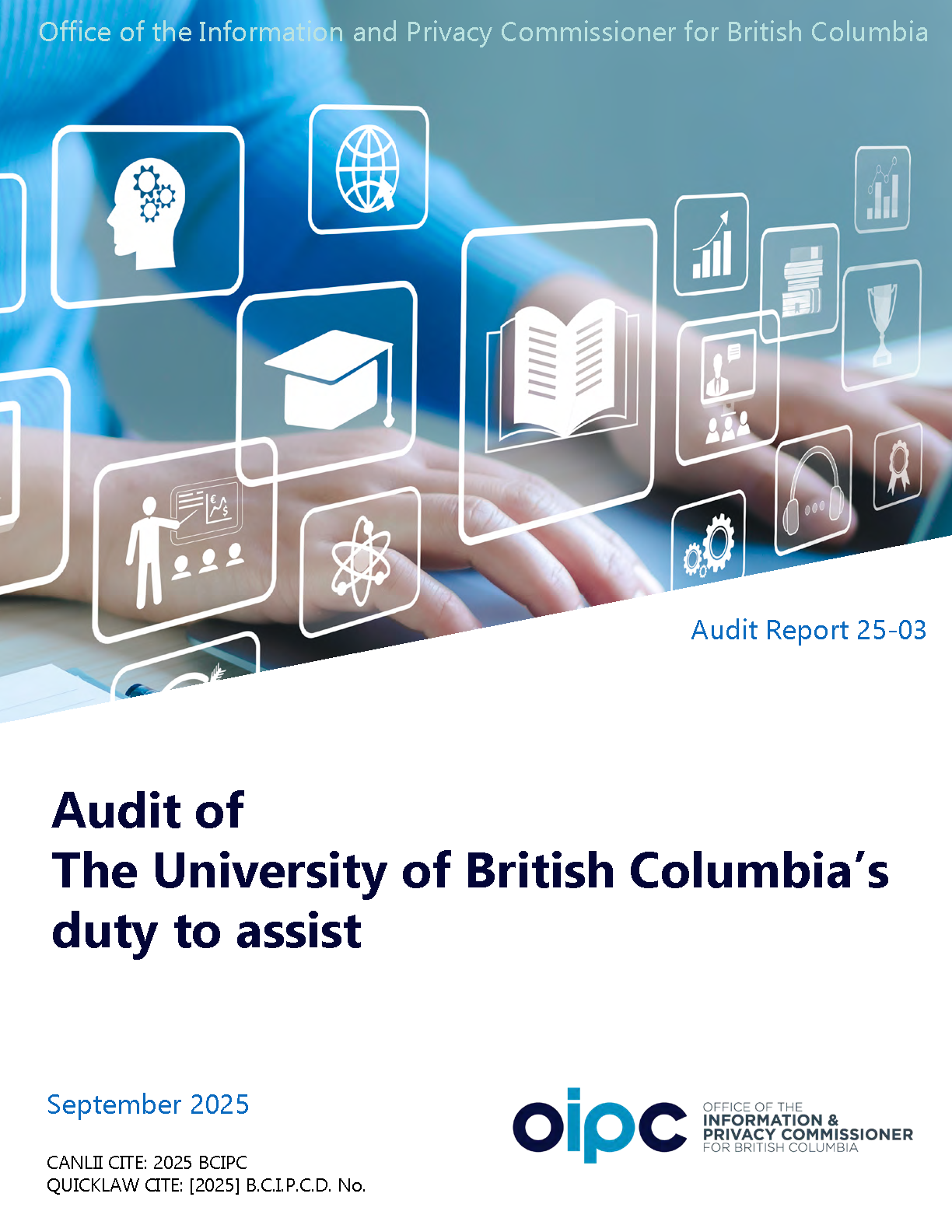Audit Report F25-03 The University of British Columbia's duty to assist

Commissioner's Message
Both universities and our freedom of information laws operate on the principle that society benefits when information and ideas are out in the public arena and open to scrutiny and debate. The spirit of open inquiry is what makes institutions of higher education so important to our society, helping us better understand and improve the world we live in. Our public sector FOI law, the Freedom of Information and Protection of Privacy Act (FIPPA), likewise, aims to make information available so that we can hold our public institutions to account and better understand the decisions that impact our lives.
If these institutions don’t comply with FIPPA, they undermine these fundamental principles of transparency, accountability and empowering people with information for the benefit of society. This is especially challenging at a time when disinformation and misinformation are rampant in the public discourse. Delayed access erodes trust at a time when society needs to be able to rely on the broader public sector more than ever.
This report focuses on the University of British Columbia (UBC)’s freedom of information system, and details multiple weak points in UBC’s processes. This investigation found a noncompliance rate of 90% - the highest rate of non-compliance my office has seen in 10 years of reviewing public bodies’ duty to assist.
This is concerning not only because of UBC’s important role in education and advancing knowledge in this province, but also because of the sheer scope and scale of the university’s operations.
UBC is the largest university in this province and operates on the scale of a municipality. Beyond classrooms and research facilities, the university oversees housing, restaurants, health centres, stores, libraries, movie theaters, sports fields, concert venues and more. Unlike municipalities, where many services are provided by independent businesses, UBC controls these operations – the university’s decisions affect the lives and livelihoods of thousands of people.
Moreover, UBC’s footprint doesn’t end at campus perimeters: the university is also a central fixture in host communities. UBC has a diverse population of students, residents, faculty and staff in addition to the different venues and services offered. All together, the larger university environment can create a foundation for a more complex and varied mix of FOI requests.
Given UBC’s scope and prominence in this province as well as the public funding it receives, people living in British Columbia should be able to expect transparency and robust accountability at all levels through a well functioning access to information system.
I recognize that UBC has made some important steps to improve its system for responding to access requests. However, this report should serve as a wakeup call not only for UBC, but for all public bodies in this province about their obligations under FIPPA. Transparent and accountable public bodies build trust with the people they serve. Our democratic society stands on the strength of that trust. We cannot afford to discount it.
To read the full report: https://www.oipc.bc.ca/documents/audit-reports/3023
To read the news release: https://www.oipc.bc.ca/documents/news-releases/3024
To view a video on the report: https://youtu.be/89aF3zcEmCk
To read guidance on FIPPA and the FOI process: https://www.oipc.bc.ca/documents/guidance-documents/3009
To read an overview of the report: https://www.oipc.bc.ca/documents/infographics/3025





